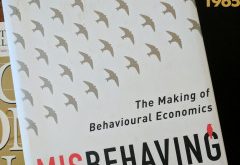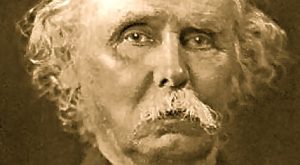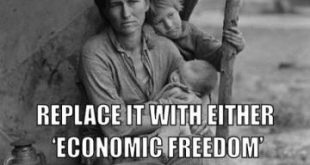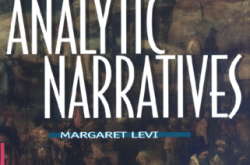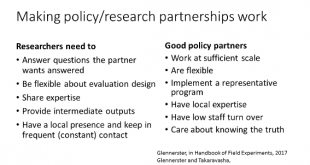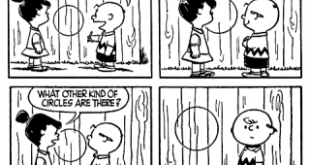Beware of the Coase theorem! Willingness to walk away from an ‘unfair’ offer is [one] reason why the predictions of the Coase theorem often fail. I had discovered this firsthand many years earlier in Rochester. Our home there had a willow tree in the backyard … The neighbor hated that tree. He asked me to have the tree removed … I knew the Coase theorem … So I went to talk to my neighbor and told him that, while the tree did not bother me, if he felt...
Read More »Mathematical economics — an unmixed evil
Mathematical economics — an unmixed evil Balliol Croft, Cambridge 27. ii. 06 My dear Bowley, I have not been able to lay my hands on any notes as to Mathematico-economics that would be of any use to you: and I have very indistinct memories of what I used to think on the subject. I never read mathematics now: in fact I have forgotten even how to integrate a good many things. But I know I had a growing feeling in the later years of my work at the subject that...
Read More »Keynes’ beauty contest
Professional investment may be likened to those newspaper competitions in which the competitors have to pick out the six prettiest faces from a hundred photographs, the prize being awarded to the competitor whose choice most nearly corresponds to the average preferences of the competitors as a whole; so that each competitor has to pick not those faces which he himself finds prettiest, but those which he thinks likeliest to catch the fancy of the other competitors, all of whom...
Read More »Why game theory never will be anything but a footnote in the history of social science
Why game theory never will be anything but a footnote in the history of social science Half a century ago there were widespread hopes game theory would provide a unified theory of social science. Today it has become obvious those hopes did not materialize. This ought to come as no surprise. Reductionist and atomistic models of social interaction – such as the ones mainstream economics and game theory are founded on – will never deliver sustainable building...
Read More »McCloskeyian rhetoric
This is not new to most of you of course. You are already steeped in McCloskey’s Rhetoric. Or you ought to be. After all economists are simply telling stories about the economy. Sometimes we are taken in. Sometimes we are not. Unfortunately McCloskey herself gets a little too caught up in her stories. As in her explanation as to how she can be both a feminist and a free market economist: “The market is the great liberator of women; it has not been the state, which is after all...
Read More »‘Rational choice’ history — a case of models not fitting the facts
‘Rational choice’ history — a case of models not fitting the facts Rational choice history is in a worse situation than that of either mechanistic biology in the seventeenth century or of sociobiology today. The analogy would be appropriate if it were mainly a question of refining the theories and of gathering more evidence. One could refine theory by incorporating bounded rationality and quasi-rational choice, so as to match more closely the way in which...
Read More »IPA’s weekly links
Guest post by Jeff Mosenkis of Innovations for Poverty Action. Above: Some lessons from Rachel Glennerster on policy vs. academic research paths Nick Kristof talks with Amanda Glassman at the Center for Global Development about trying to get the world’s attention to alleviation of poverty and suffering. (FYI there are a number of tools that will let you covert youtube videos to audio MP3 to listen to like podcasts). A nice pair of short podcasts with Alice Evans and David Evans (who are...
Read More »Do economic models — really — explain anything at all?
Do economic models — really — explain anything at all? In my view, scientific theories are not to be considered ‘true’ or ‘false.’ In constructing such a theory, we are not trying to get at the truth, or even to approximate to it: rather, we are trying to organize our thoughts and observations in a useful manner. Robert Aumann What ‘Nobel prize-winning’ economist Robert Aumann and other mainstream economics defenders of scientific storytelling ‘forget’ is...
Read More »Transitivity — a questionable ‘rational choice’ assumption
Transitivity — a questionable ‘rational choice’ assumption My doctor once recommended I take niacin for the sake of my heart. Yours probably has too, unless you’re a teenager or a marathon runner or a member of some other metabolically privileged caste. Here’s the argument: Consumption of niacin is correlated with higher levels of HDL, or “good cholesterol,” and high HDL is correlated with lower risk of “cardiovascular events.” If you’re not a native...
Read More »Game theory — a severe case of ‘as if’ Model Platonism
Game theory — a severe case of ‘as if’ Model Platonism The critic may respond that the game theorist’s victory in the debate is at best Pyrrhic, since it is bought at the cost of reducing the propositions of game theory to the status of ‘mere’ tautologies. But such an accusation disturbs the game theorist not in the least. There is nothing a game theorist would like better than for his propositions to be entitled to the status of tautologies, just like...
Read More » Heterodox
Heterodox

